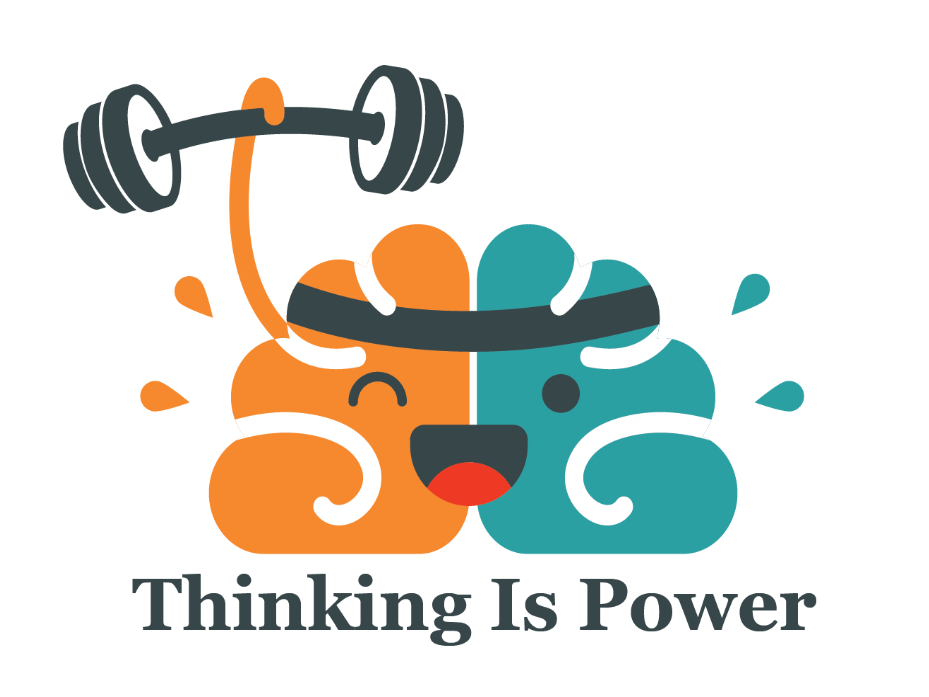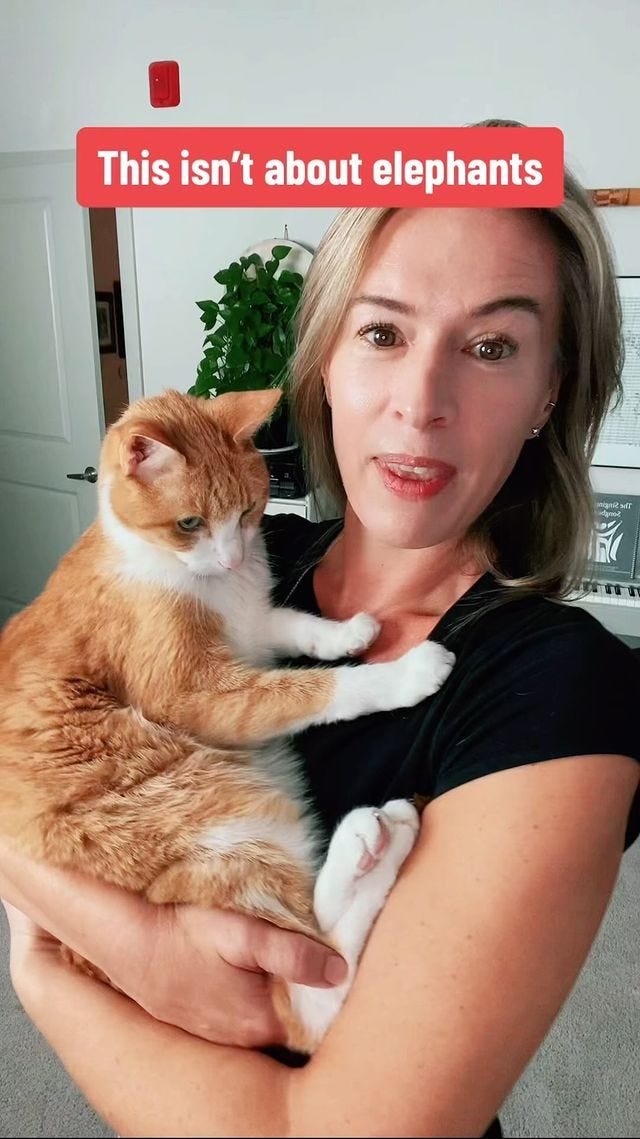CIRCE Operations Director Luke Johnson interviews CIRCE Education Director Melanie Trecek-King about her work as a critical thinking communicator with the Mental Immunity Project and her project, Thinking Is Power. Enjoy!
Interested in supporting our work? Consider contributing to our end-of-year fundraiser here. (And feel free to set up your own fundraising campaign!)
Beginning of interview:
Luke: Before you got involved with CIRCE and the Mentally Immunity project you had started Thinking Is Power. Can you speak to the general goal of Thinking is Power and what makes it different than other science communication blogs and channels?
Melanie: I’m a biologist at a community college and I specialize in science for non-science majors. It took me 15 years, but I finally realized that, while understanding the process of science is really important to students' lives, many courses focus on what science knows as opposed to how it knows those things.
I decided to create a new course that teaches skills, not facts. Those skills are critical thinking, information literacy, and science literacy.
The premise behind the course, and my site Thinking Is Power, is that knowledge might be power… but there's too much to know. Plus, we carry access to basically all of humanity's knowledge in our pockets! The question is, when you need reliable information, can you find it and think about it in a way that helps you make better decisions?
I don't usually call myself a science communicator because I don't spend a lot of time actually communicating scientific findings. I would call myself a critical thinking communicator. I want to help people understand the ways that we can deceive ourselves and why science is a more reliable way of knowing.
A lot of science classes start with the “scientific method,” which is typically oversimplified and even inaccurate. But setting aside those concerns… if we start with the scientific method, it leaves open the question of why we need science!
We’re biased and emotional… we're motivated by things like our identity and values… our perception and memory can mislead us… and so on. That’s why I spend a lot of time in my class, and in my communication, helping people understand what's going on in our heads so that they can understand why science is even necessary.
I would call myself a critical thinking communicator. I want to help people understand the ways that we can deceive ourselves and why science is a more reliable way of knowing.
How did you find out about CIRCE and get involved?
Science classes often don’t include misinformation, which is unfortunate because misinformation is a great way of understanding the characteristics of reliable information as well as our vulnerabilities to misinformation. I happened to stumble upon the idea of teaching students how to recognize the techniques of misinformation by having them create silly and humorous examples.
I had done some work with inoculation researchers, such as John Cook, the creator of the Cranky Uncle game. Somehow Andy [founder and director of CIRCE and the Mental Immunity Project] and I got connected—maybe on Facebook or something?—and the rest is history.
What made you excited about getting involved with CIRCE and more specifically, the Mental Immunity Project?
It's this idea of using misinformation in class and specifically, inoculation theory. I think it's a really powerful way of teaching students how misinformation works.
When Andy offered me the opportunity to create lesson plans that inoculate students against various types of misinformation, I was super excited.
Over the last year, you've gotten more and more into video creation I've noticed and you've even had some viral videos, particularly on Tik Tok and Instagram. So with that, how do you balance the sort of a desire to go viral and get the message out there with the goal of being genuine and thoughtful and creating educational content?
That's interesting because I have no idea how to make a video go viral! And I've had some videos go viral, but I can't figure out why. Like, was it the content? The time of day I posted it? My cat?
I spend a long time on most videos, but my most viral video was almost an afterthought. I was at a conference with my husband and had an interesting conversation with one of his choral conductor colleagues. That evening he went to move the car, and in the 15 minutes he was gone I recorded and posted a video. It now has about a half million views! I don't even understand. It’s actually a bit frustrating.
It’s discouraging how social media rewards content that’s emotional and inflammatory. Angry and misleading content can spread like wildfire while thoughtful posts creep along after it. Although I think my cat does help.
Over the last year, you've created some awesome lesson plans for the Mental Immunity Project and Thinking is Power. Can you speak to what the goal is of putting these lesson plans out there for the world?
Misinformation is an enormous problem, yet most educational standards–and therefore classes–don’t address it. Teachers have a lot of content to teach. Their curriculum is full. But we simply must help students understand and evaluate the information they’re bombarded with every single day.
When I developed my class I had the privilege of having complete freedom. I asked myself: If I had one semester to teach the average person what they needed to know about science, what would that look like?
Most teachers don't have that privilege. They don’t have time in their classes to cover misinformation, and they don’t have time to become experts in every type of misinformation. One of my goals with these lesson plans is to provide enough background knowledge so that educators feel comfortable enough to include it in their classes.
If we want to help students understand and accept these important scientific topics, we need to do more than simply give them more information.
As science educators, we face a lot of misinformation in classrooms, like evolution denial, climate change denial, health pseudoscience, and so on. There are many great resources to help teachers cover topics like evolution. But many of these efforts operate under the information deficit model, which is the idea that someone doesn’t accept science because they don’t have enough information.
The problem is that science denial and pseudoscience are usually motivated by solution aversion, vested interests, identity needs, and so on. If we want to help students understand and accept these important scientific topics, we need to do more than simply give them more information. We need to teach them to understand how their desires and emotions can fuel their reasoning.
Importantly, misinformation is an engaging and effective way to teach content.
You have been traveling a lot this year giving a lot of talks and workshops with the goal of spreading critical thinking and mental immunity to misinformation. In gaining all this experience in public speaking and talking to so many people about how to be better thinkers, what's something that you've learned along the way?
I think probably the biggest thing I've learned, or what really stands out to me at the moment, is that we can all fall for misinformation.
Almost without fail, whenever I tell someone that I help people protect themselves against misinformation, the conversation almost always goes something like, “Wow, there's a lot of misinformation out there. So much misinformation.” And then, “People are so stupid. Can you believe they fall for those things?” The moment the conversation includes misinformation they think is true, the conversation shuts down.
The point is, misinformation isn’t a “them” problem. It’s an “us” problem. It can be dangerous to convince ourselves that we’re too smart to fall for misinformation. We all have vulnerabilities.
Okay, I have just one more question. So thinking big picture and thinking long-term, why should people care about the Mental Immunity Project and consider supporting our work?
Misinformation is a huge problem that’s only going to get worse. We’re all vulnerable. Critical thinking and the Mental Immunity Project help us understand how our minds work so that we can protect ourselves and the people around us from misinformation. We act on our beliefs, whether they are true or not, so it's important to align our beliefs with reality.
Misinformation is a systemic problem, but there are few (if any) fail-safes in place. Social media companies, the government, and so on… we’re really on our own. If you care about the health of society and democracy, we need to find ways to fight misinformation. And the Mental Immunity Project is a great step in that direction.
Today, we’re launching our End of Year Fundraiser!
If you support our mission and want to help sustain it, please consider donating.
Thank you for your support!









